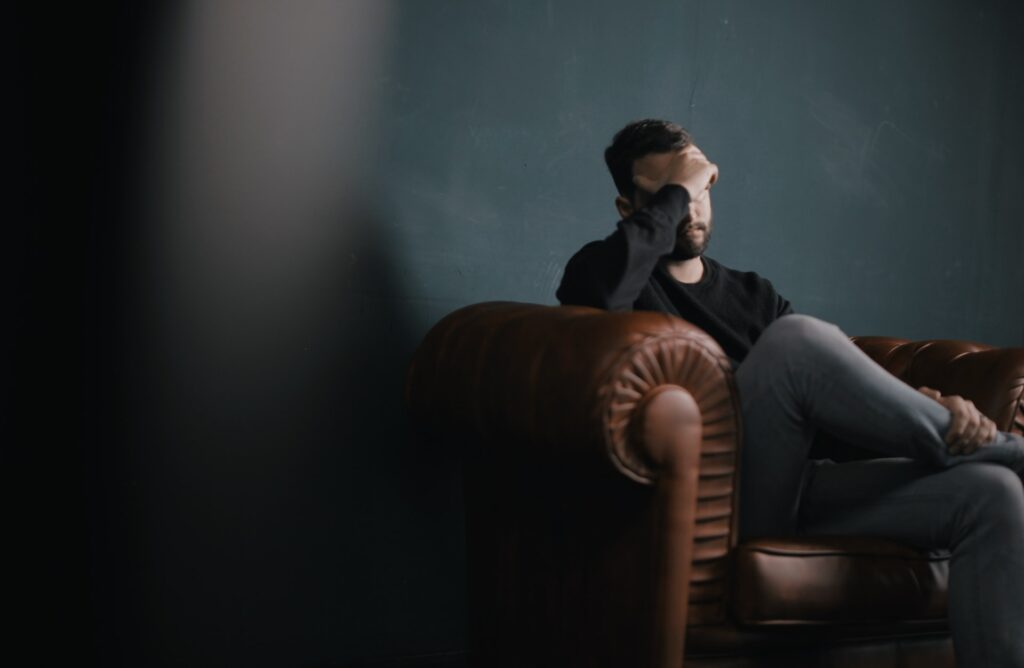Crack cocaine is a powerful and highly addictive stimulant. This illegal drug causes a rapid and powerful high. Cocaine is a white powder that is obtained from the dried leaves of the coca plant that mainly grows in South America. Crack appears like small rocks and is made by cooking cocaine with baking soda. It is called crack because of the crackling sound it makes when heated. Crack cocaine is sold on the street as snow, blow, coke, rock, smack, and other names. Crack appears as white or tan pellets that resemble dry cat food.
Addiction to both crack and cocaine can be extremely dangerous, even fatal. If you are struggling with crack cocaine use, it’s important to get help as soon as possible. Additionally, if you are worried about a friend or family member who is addicted to crack cocaine, do not delay getting help. Remember, a person who is in the throes of cocaine addiction is not rational or logical, so it may be up to you to seek help. There are several resources available, including crack cocaine hotlines where you can get more information about cocaine addiction and how to overcome it.
What is a crack cocaine hotline?
A crack cocaine hotline is a telephone number that you can call to get free information on crack cocaine abuse and addiction. For instance, you can call a crack cocaine helpline if you suspect that a family member or friend may be using drugs or may have developed an addiction to these substances. The representative who answers your call will tell you about the common signs and symptoms of crack cocaine abuse. They will also direct you towards resources, such as drug rehab facilities in your area, that can help people with a cocaine addiction.
Some of the questions that can be answered by a crack cocaine helpline include:
- What are the risk factors and symptoms of crack cocaine addiction?
- What are the dangers of crack cocaine use?
- What are the signs of a crack cocaine overdose?
- Are there any drug rehab programs for crack cocaine in my area?
- Does insurance cover crack cocaine treatment?
- Where can I get emotional and psychological support?
- How can I prevent crack cocaine addiction in myself and my loved ones?
Crack cocaine hotlines are typically available 24 hours a day, 7 days a week. They are staffed by trained individuals who are helpful and knowledgeable about crack cocaine use. All calls to crack cocaine helplines are confidential. Support is offered without judgment or reprimand. Calling a crack cocaine hotline is an important first step towards recovery for people who have developed an addiction.
What phone numbers are available if someone needs help with crack/cocaine abuse?
In case of an emergency or any type of life-threatening situation, such as a suspected crack cocaine overdose, call 911.
In non-emergency situations, the following phone numbers and resources are available to help with crack cocaine addiction:
National Helpline Number: (844) 289-0879ℹ
The National Drug Helpline operates a 24/7 crack cocaine helpline. You can call any time of the day or week. Sometimes, we may not be able to answer your call due to call volumes, limited personnel, or other constraints. Please try calling back or call one of the other helplines listed below.
SAMHSA: 1-800-662-HELP (4357)
SAMHSA is a federally-funded US government organization with extensive resources for people with a crack cocaine addiction. The SAMHSA hotline number offers information and referral services in English and Spanish and is available 24/7.
NATIONAL SUICIDE HELPLINE: 1-800-273-TALK (8255)
People in crisis can call the National Suicide Prevention Lifeline on 1-800-273-TALK (8255).
NATIONAL POISON CONTROL: 1-800-222-1222
Information about drug overdoses, including crack cocaine overdoses, is available from National Poison Control on 1-800-222-1222.
What resources are available for crack cocaine recovery?
The National Institute on Drug Abuse (NIDA) offers great advice and extensive information about cocaine and other drugs. You can visit the NIDA website www.drugabuse.gov or call them on 1-877-NIDA-NIH (1-877-643-2644).
You can get specific information on crack cocaine from www.drugabuse.gov/drug-topics/cocaine.
Cocaine Anonymous is a worldwide fellowship of addicts seeking recovery from crack cocaine addiction and may have some useful resources.
If you are worried about your teenager using crack cocaine, there is a specific website with information and resources for teen drug use: www.teens.drugabuse.gov.
Another useful resource is the Partnership for Drug-Free Kids, where parents and guardians can learn the facts about various drugs to keep their kids safe: https://drugfree.org/wp-content/uploads/2017/02/Drug-Guide-for-Parents.pdf
If you would like to participate in research studies on drug addiction, including crack/cocaine addiction, check this website for more information: https://researchstudies.drugabuse.gov/.

How much does crack cocaine recovery cost?
Many people are motivated to quit crack/cocaine but are not sure if they can afford addiction treatment. The cost of crack cocaine addiction treatment depends on several factors, including:
Health insurance: If you have a health insurance policy, there’s a good chance that at least some of your cocaine addiction treatment is covered. Call our helpline on (844) 289-0879ℹ to find out more about co-pays, deductibles, and out-of-pocket expenses.
Type of addiction treatment: Outpatient programs cost considerably less than residential or partial hospitalization drug rehab programs. Admissions counselors at a drug rehab facility will be able to help you determine what kind of treatment you need and how much it will cost. Typical costs are listed below (these are ballpark figures):
Drug detox from $250 to $800 per day
30-day intensive outpatient care from $3,000 to $10,000
3-month outpatient care from $1,400 to $10,000
Residential treatment from $5,000 to $80,000+
Type of rehab facility: Government-aided drug rehabs are typically low-cost but may have a waiting list. Private rehabs can be more expensive, but you probably won’t have to wait to start treatment.
Financial assistance: Some people (for example, pregnant women or injection drug users) may qualify for government programs that subsidize the cost of drug rehab and make addiction treatment available on priority [1] Also, some private drug rehab centers offer sliding-scale payments, scholarships, or deferred payment plans to make addiction treatment more affordable.
When you’re considering the cost of crack cocaine addiction treatment, don’t forget to take into account what your drug habit is costing you, including the money you spend on buying crack cocaine, missed work, poor financial decisions made under the influence of cocaine, and healthcare costs.
What can I expect in crack cocaine rehab?
Recovery from crack cocaine addiction is challenging both psychologically and physically. Professionals can make it easier to cope and improve your chances of a full recovery. Crack cocaine rehab at a professionally managed facility ensures that you receive all the support you need, both medical and emotional, to overcome your addiction and gain the mental strength you need to kick your crack habit forever. At a professional crack treatment facility, you will be surrounded by people who understand your addiction and support you without judging. This type of support is critical for breaking the grip of crack cocaine and staying abstinent long-term.
What type of rehab is typically used for crack cocaine?
The first step in rehab for crack cocaine is typically detoxification. Detox consists of safely eliminating the drugs from your body in a medically supervised and controlled environment. During detox, medical personnel manage the intense drug cravings and withdrawal symptoms that are common in people suffering from crack cocaine addiction. Medications can be prescribed during this phase of recovery to reduce symptoms like anxiety, insomnia, and cravings. Withdrawal from crack cocaine is incredibly difficult, and people with a severe addiction are at high risk of relapse, especially in the early stages. Addiction treatment experts can increase the chances of success. Specialists in addiction medicine have helped thousands of people make successful recoveries from cocaine abuse.
At the present time, there are no FDA-approved medications that are specifically used to treat cocaine addiction. [2] However, disulfiram, a medication used to treat alcoholism, has been shown to reduce cocaine use in some people.
The mainstay of crack cocaine addiction treatment, once detox has been completed, consists of behavioral interventions. These can be offered in both outpatient and residential settings. Effective behavioral therapies that have shown positive results in people with cocaine addiction include contingency management and cognitive-behavioral therapy (CBT).
Can I call a crack cocaine helpline or hotline for a family member?
Yes, crack cocaine hotlines provide resources to anyone looking for help, including family members and friends who are concerned about a loved one. If you suspect or know someone has a problem with cocaine abuse, you can call our crack cocaine hotline for information and guidance.
What can I expect when I call a crack cocaine helpline?
Crack cocaine addiction is a deeply personal matter. It can be overwhelming and frightening to call a helpline and take that first step. However, representatives at the National Drug Helpline are experienced, helpful, and non-judgmental. They will give you information and advice in complete confidentiality. It’s a good idea to have a list of questions ready before calling the crack cocaine hotline. Also, it’s helpful to be prepared with the answers to the most common questions asked by representatives at a crack cocaine helpline, such as:
Is this an emergency?
How long have you been using crack cocaine?
How frequently do you use crack cocaine?
Do you have any co-occurring physical or mental health problems?
Have you been to rehab before?
Are you ready to start addiction treatment?
Is my call free on this hotline?
Yes, the National Drug Hotline is a toll-free hotline that provides free information to people struggling with all kinds of addiction, including crack cocaine addiction. You do not need insurance to call, but if you decide to get crack cocaine addiction treatment, you will need insurance or you will have to pay out of pocket for cocaine rehab.
Calling a crack cocaine hotline is a free and easy way to get answers and advice for yourself or a loved one. Taking this important first step can mean the difference between life and death. Call today and get the help you need.
Last updated: March 6, 2024
Dr. Jennifer Merrill
Dr. Jennifer Merrill is an Associate Professor in the Department of Behavioral and Social Sciences at Brown University. She received her PhD in 2012 from the University at Buffalo, and is a licensed clinical psychologist in Rhode Island (Credential ID: PS01479).
Dr. Merrill has published over 70 peer-reviewed articles in journals such as Psychology of Addictive Behaviors, Addictive Behaviors and Journal of Studies on Alcohol and Drugs. Her published work includes 'Drinking over the lifespan: Focus on college ages' and 'Event-level correlates of drinking events characterized by alcohol-induced blackouts'.
References
| ↑1 | SAMHSA. Substance Abuse Prevention, Treatment, and Recovery Services Block Grant. Available online. Accessed on March 6, 2024. |
|---|---|
| ↑2 | National Institute on Drug Abuse. How is cocaine addiction treated? Available online. Accessed on March 6, 2024. |

